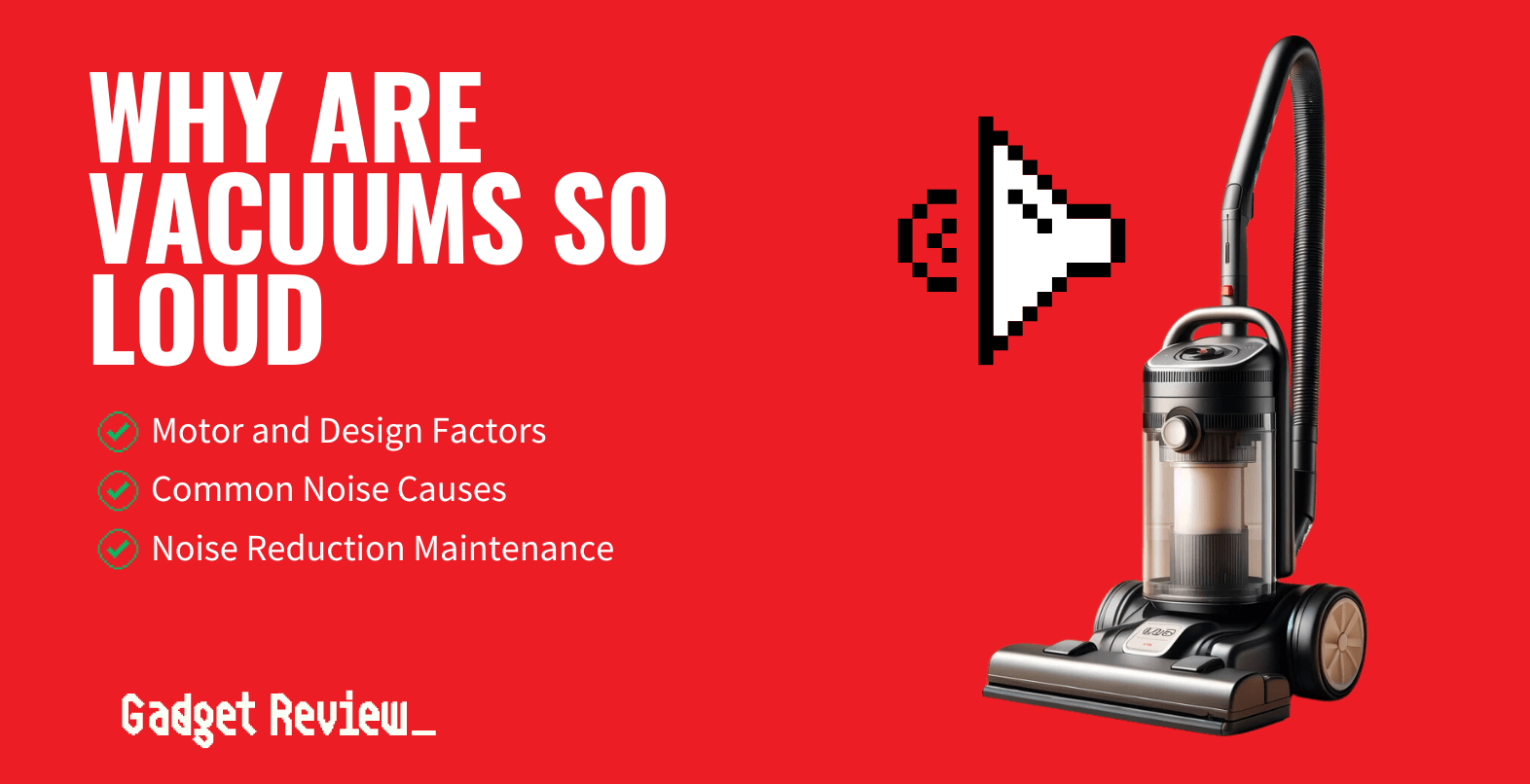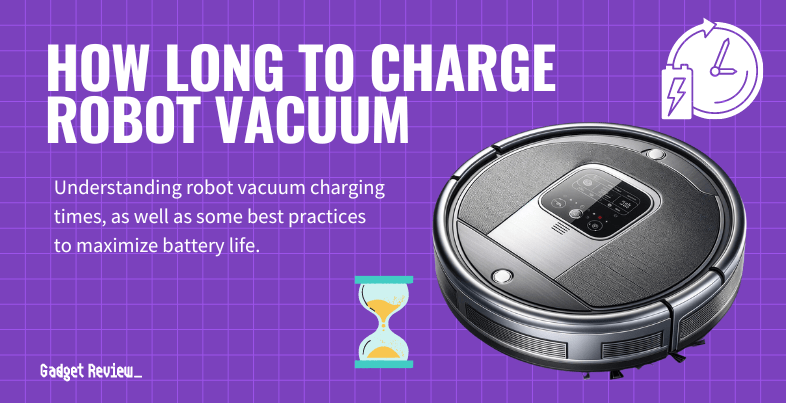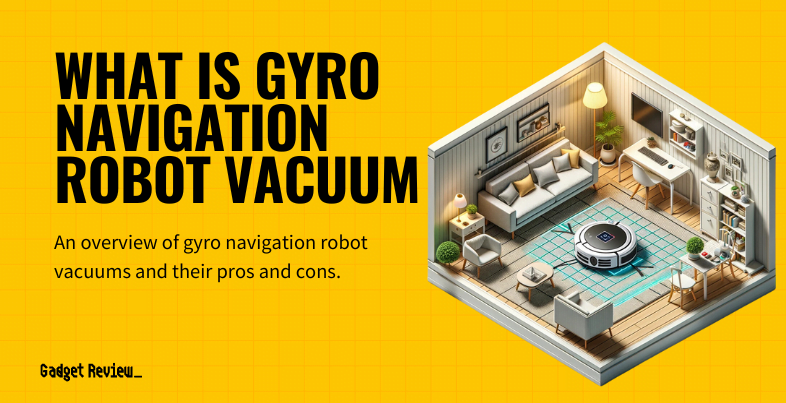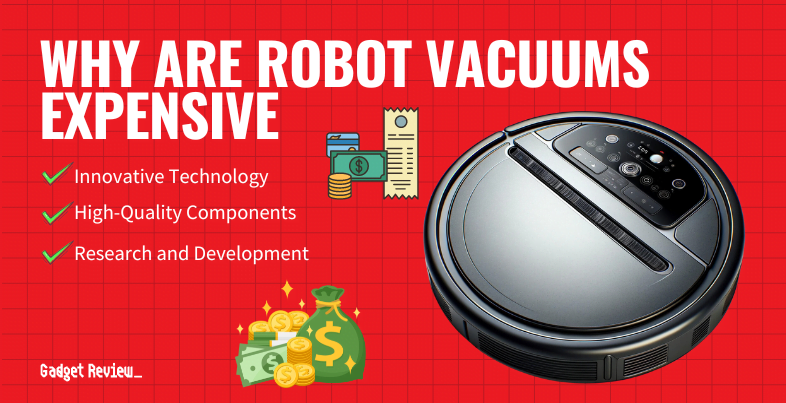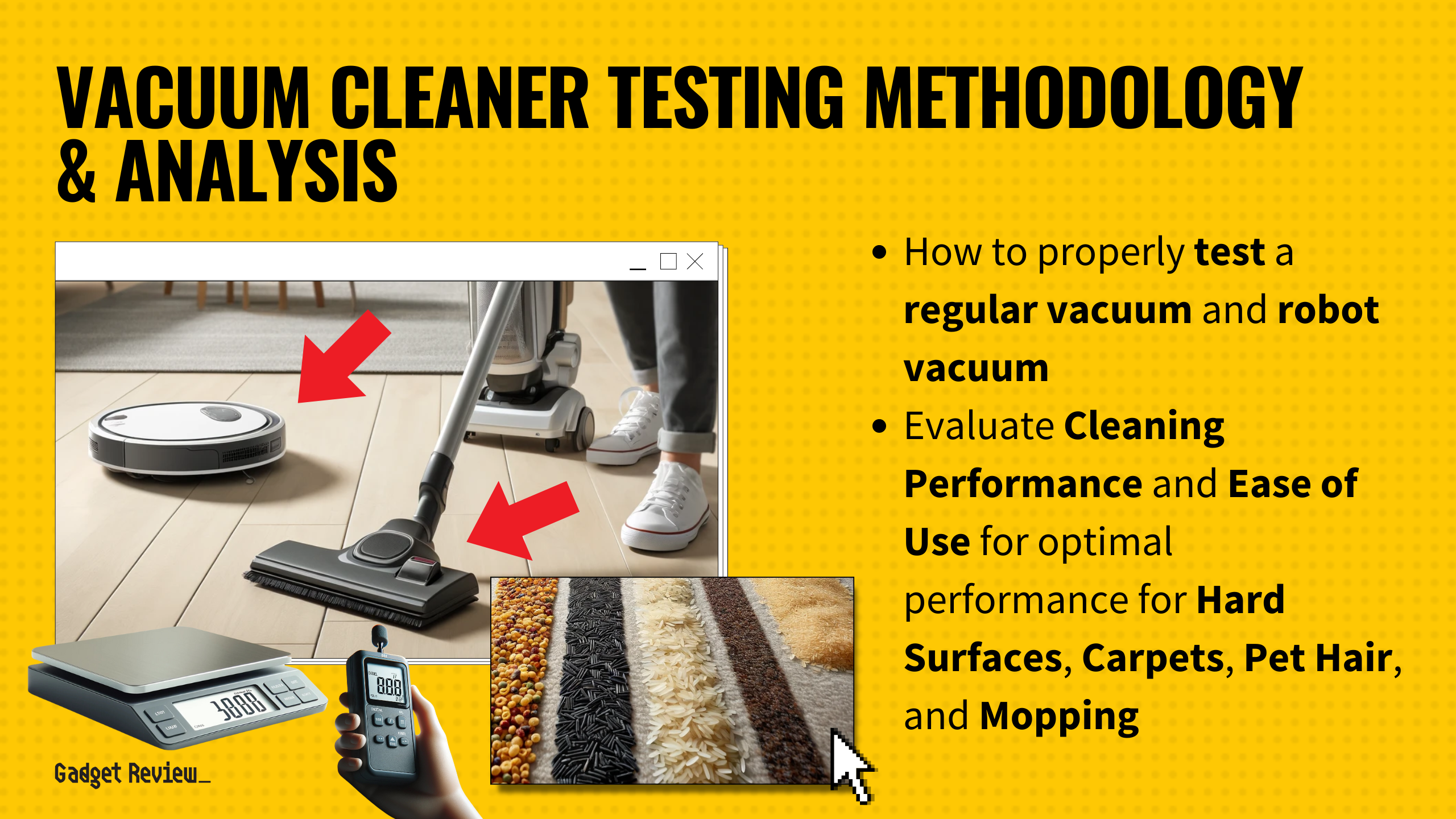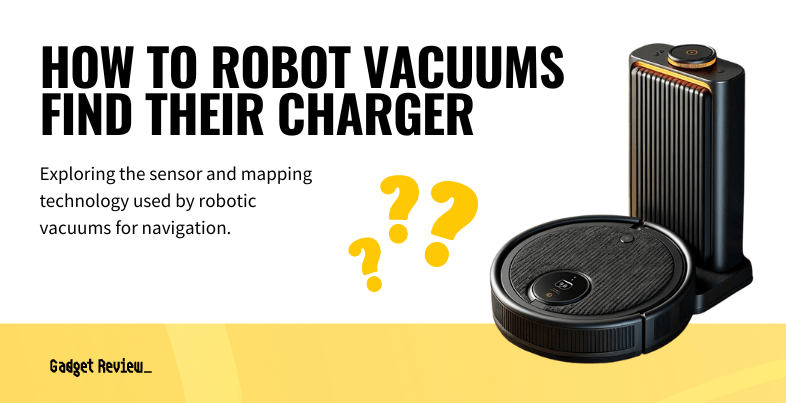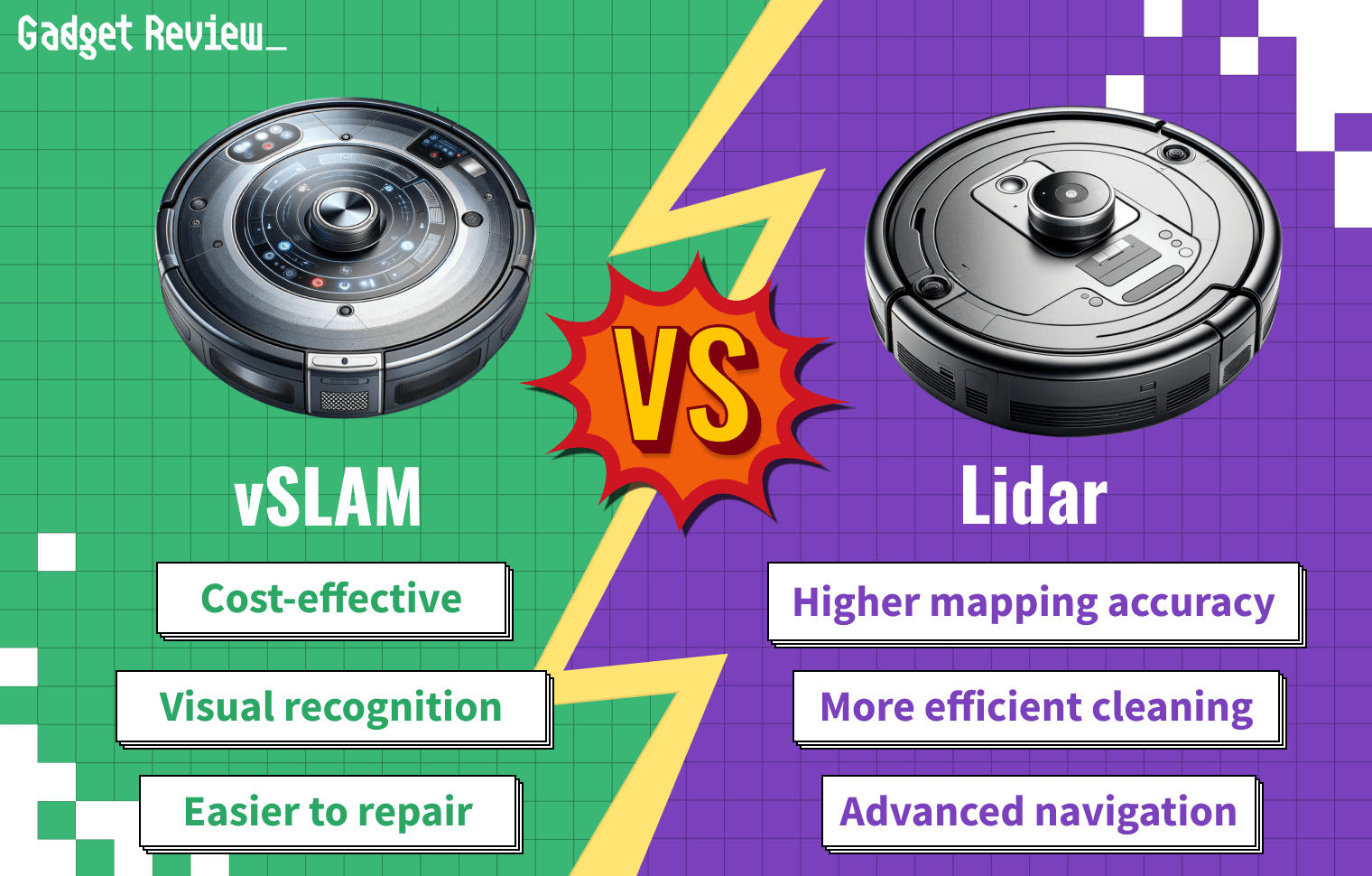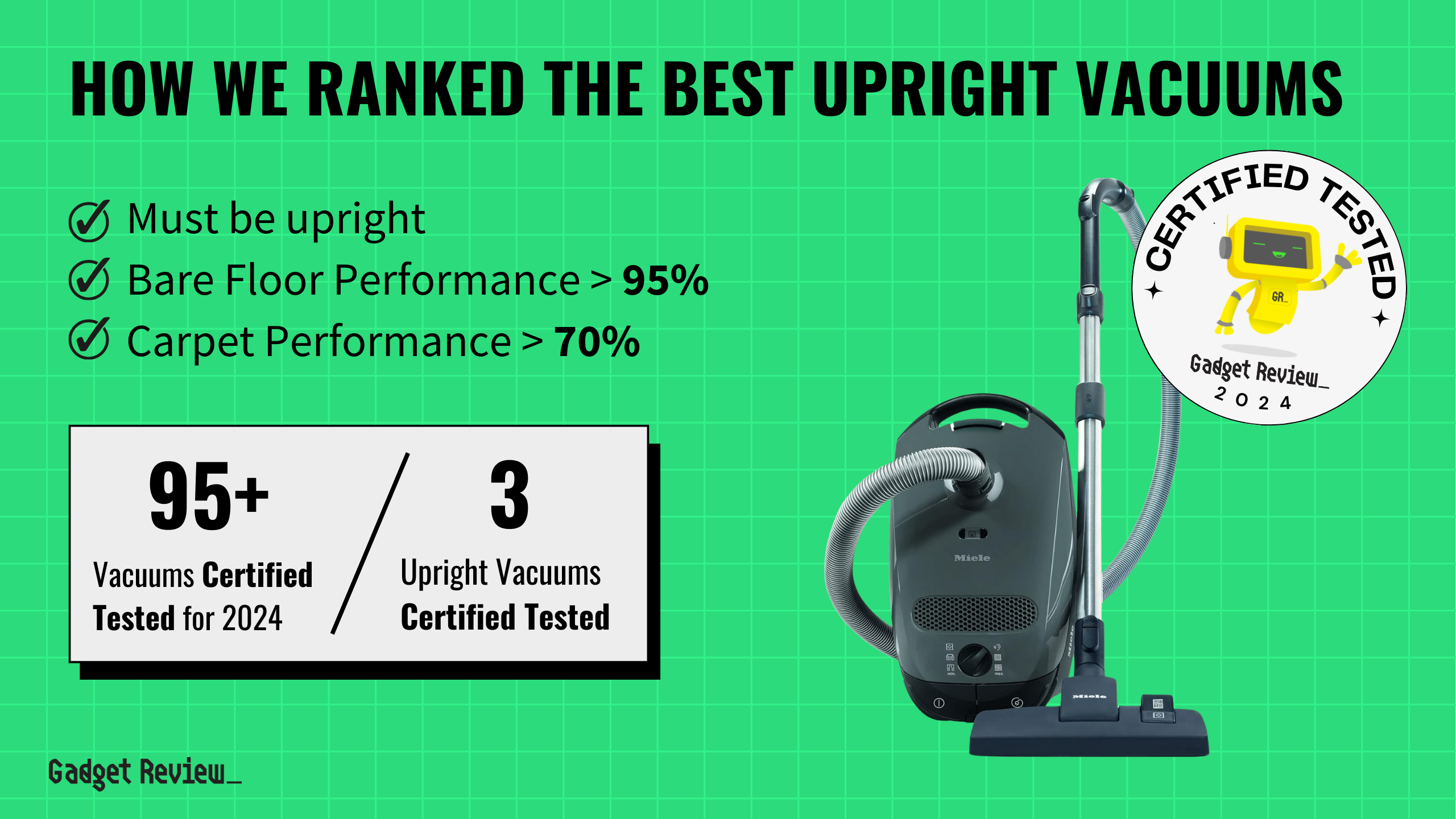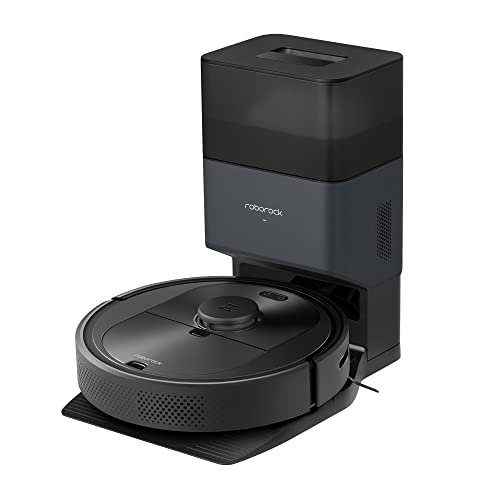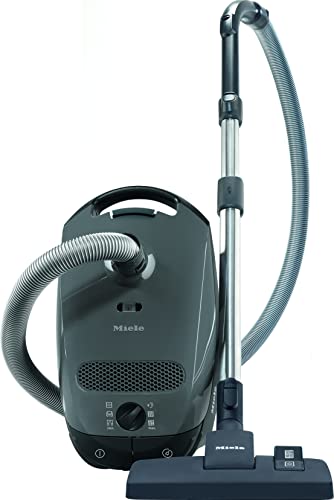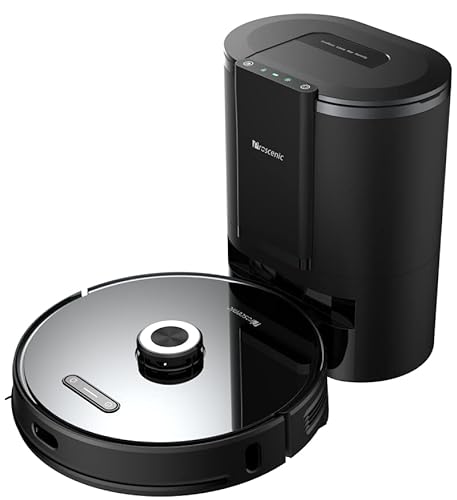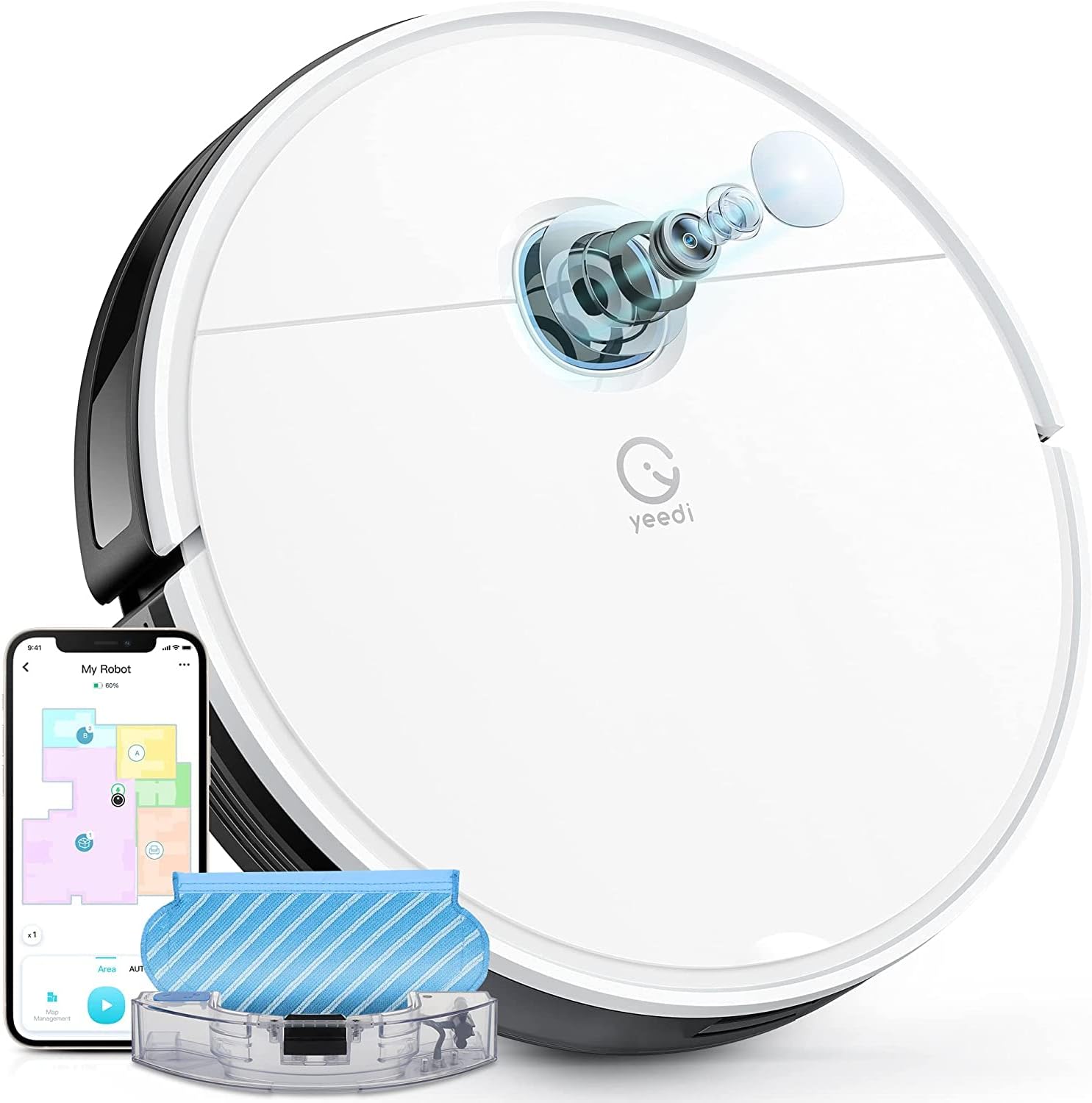An often unwelcome feature of vacuum cleaners is loud noise. While they make our lives easier, the roar of a vacuum cleaner can be a source of annoyance.
Have you ever wondered why these helpful machines are often so loud?
Reasons Why Are Vacuums So Loud
Vacuum cleaners are loud due to their motors and the air pressure changes they create. The motor’s high-speed rotation generates suction, but this process also leads to the emission of loud noise.
Additionally, the design and construction of a vacuum can amplify these sounds, especially in models with plastic bodies.
Another reason for loud vacuums? There may be an issue with the motor, or a belt might be loose.
Why Your Vacuum Makes Loud Noises
To understand vacuum noises with their related sounds, check out the video below.
The Mechanics Behind the Noise
Motor and Air Pressure
The heart of a vacuum cleaner’s noise lies in its motor. The motor works at high speeds to create suction power, leading to inevitable noise.
Its fan contributes to this sound as it disrupts air pressure.
Vibrations and Construction
As air moves and circulates within the vacuum, it hits various parts, causing vibrations.
These vibrations are more pronounced in vacuums with plastic bodies, leading to the familiar loud hum.
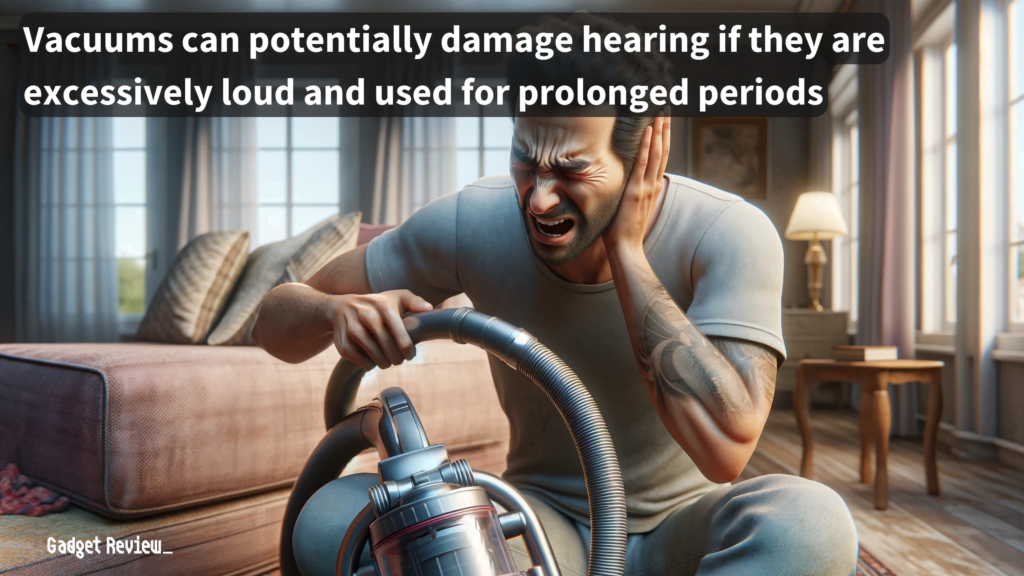
The way a vacuum is assembled can also play a role in how much noise it produces.
Common Causes of Excessive Noise
Blockages and Clogs
A significant increase in noise often points to blockages.
Objects or accumulated debris in the vacuum tubes can make the motor work harder, thus increasing the noise.
Regularly checking and clearing these blockages can help maintain a quieter operation.
Worn or Damaged Components
Over time, parts like brush bearings and fans can wear out or get damaged. A broken brush bearing, for instance, can cause excessive vibration and noise.
Similarly, a damaged fan can disrupt the vacuum’s operation, leading to louder noise.
Maintenance Tips to Reduce Noise
Regular Cleaning and Checks
Keeping your vacuum cleaner in good shape is the key to reducing noise. This includes:
- Cleaning filters and brush rolls to prevent blockages.
- Inspecting belts and fans for any signs of wear or damage, as these can contribute to increased noise levels.
- Test the motor for signs of problems. Do this long before you see smoke or feel the vacuum get hot.
Filter Maintenance
A clean filter not only ensures efficient cleaning but also helps in noise reduction. Dirty or clogged filters make the vacuum work harder, which can lead to louder operation.
Using HEPA filters can also improve performance and are better for health, especially for those with allergies.
Keeping the Peace with Your Vacuum
Learning the reasons behind your vacuum cleaner’s noise and maintaining it properly will help it last longer.
Regular checks, proper cleaning, and timely replacements are key to keeping the noise at bay. And keeping up with your vacuum ensures it’ll remain powerful enough to help in your cleaning routine.


